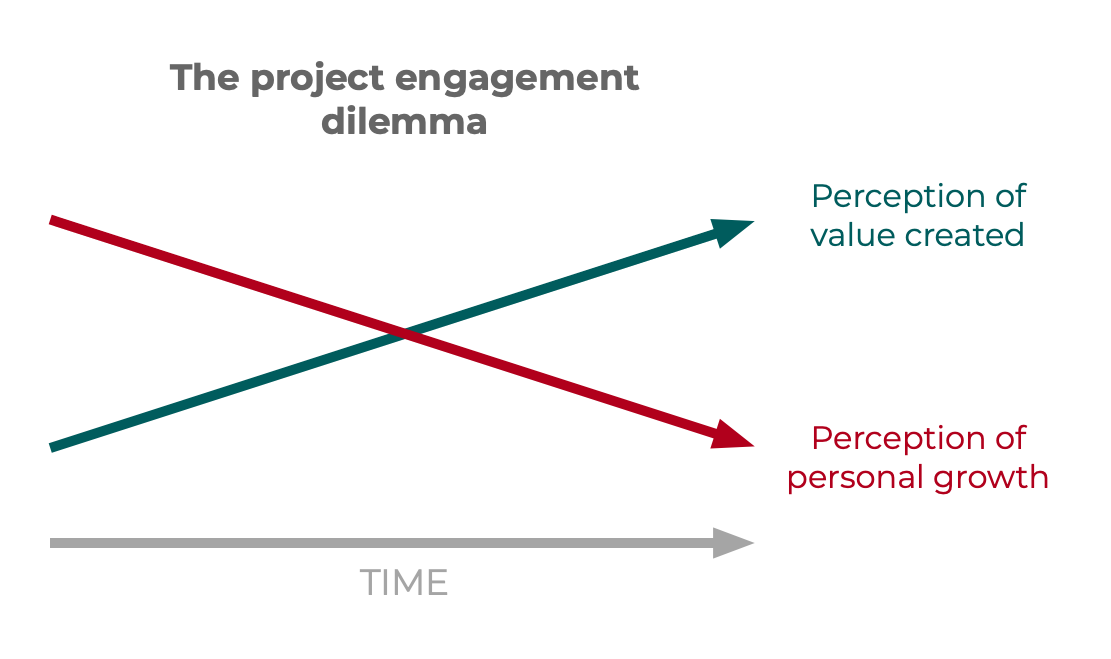Whenever I undertake a project, I ask myself two questions:
- Am I adding value?
- Am I growing or having fun?
My confidence in the answers depends on the stage of the project. I’m usually energized in early project stages, so the answer to question two is often a resounding “YES!”
Towards the project’s later stages, I often feel like I’ve learned what I was going to learn. What’s left to do feels rote, so the final stages can become a slog.
At that point, the answer to question two often becomes, “No, I’m not growing or having fun any more.” This is a dangerous state, as suggested by Peak End theory.
Question one is the opposite: I’m often uncertain about the value I’m providing at the beginning of projects, but my confidence increases as the project goes on.
This is expectable, since there isn’t enough feedback early on to know whether the work is helping. It’s especially evident in personal projects, which I don’t usually share until relatively late in their life. (This is something I’m looking to improve.)
To summarize, I want projects to end on a high note, where value is most evident — but there’s a strong drive in the final stages to move on to new pastures. It’s an issue I’ve struggled with throughout my career. I call it the project engagement dilemma.

I haven’t yet figured out how to answer question one in early project stages. I don’t think I can ever be confident about the value I’ve created very early on. But I’ve gotten better about question two.
One trick is to look for new things to learn as the project winds down. For example, I might try a new tool or technique to learn while crafting final deliverables.
Another is to think about delivery itself as a skill to be developed. I have more fun early on because I like dealing with models and abstractions. I feel less engaged when making things concrete, so I know there’s a growth opportunity there.
Yet another is collaborating with people who excel at crossing ts and dotting is. Understanding that engagement can wane towards the end has helped me seek partners who can complement my skills.
Whatever the case, being aware of my level of interest and engagement helps me adjust my energy as the project moves from start to finish. The goal is to maintain equanimity through the project’s lifespan to achieve more even results.
I’m at a point in my career where I don’t feel as anxious about the project engagement dilemma as I once did. I’ve gotten better at keeping focus, energy, and engagement throughout. But it hasn’t come naturally; it’s something I’ve worked to improve.
What about you? Do you grapple with the project engagement dilemma? If so, what are you doing about it?